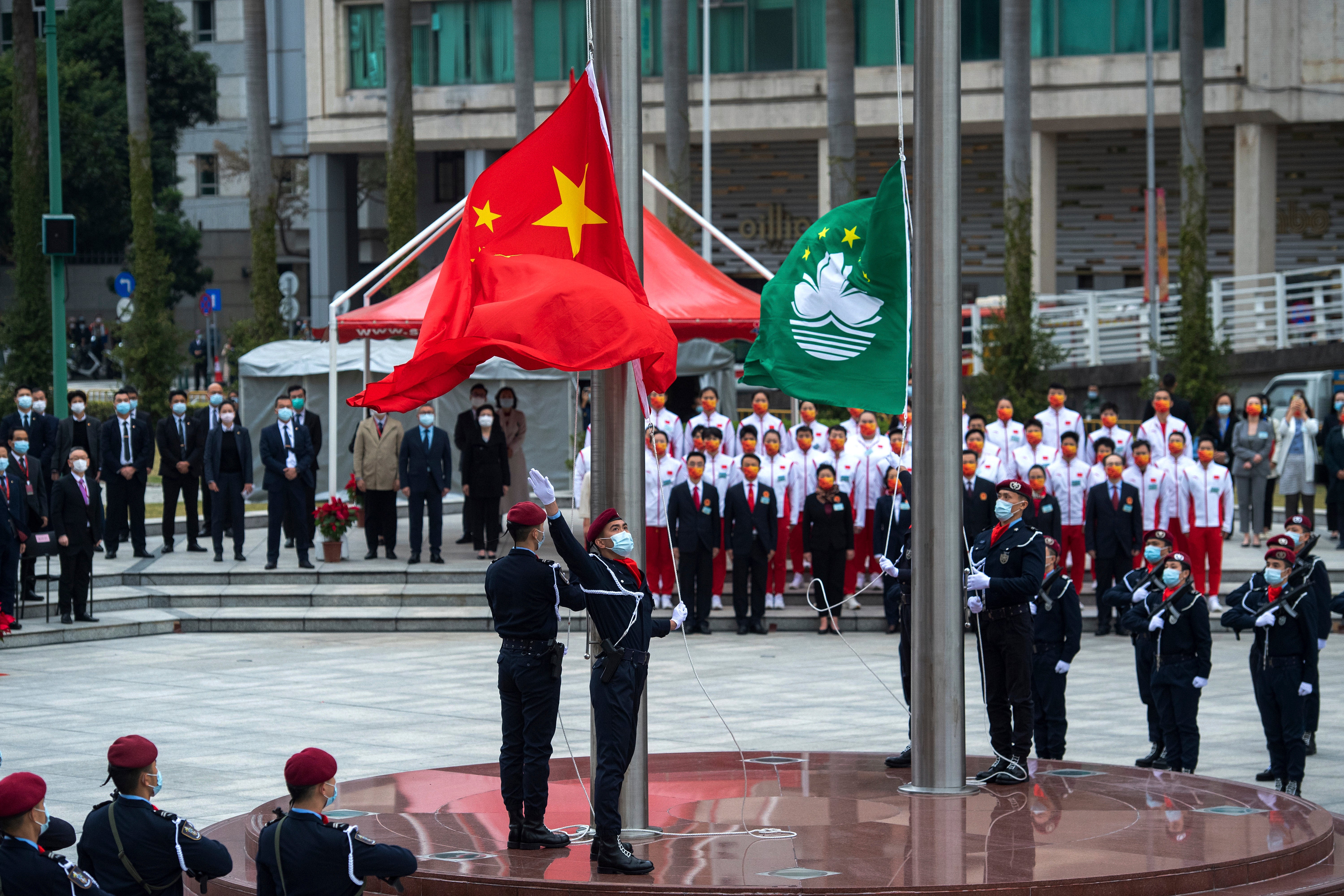Macao further restricts political freedoms with revisions to national security law
Echoing the crackdown on freedoms in neighboring Hong Kong, the former Portuguese colony of Macao has revised its legal system to face "new adverse challenges in terms of national security."

Echoing the crackdown on freedoms in neighboring Hong Kong, the former Portuguese colony of Macao has revised its legal system to face “new adverse challenges in terms of national security.”
The government of the tiny enclave, heavily dependent on its gambling industry, said changes to the Law on Safeguarding National Security were needed as an upgrade to legislation first enacted in 2009, a decade after Macao's handover to Chinese rule.
"As the country presently faces new adverse challenges in terms of national security, the revision of Macao’s Law on Safeguarding National Security is a compulsory step to respond effectively to risks and threats," the government said.
It gave no details of the changes passed Thursday by the special administrative region’s rubber-stamp legislature.
However, the Global Times newspaper published by China’s ruling Communist Party said Friday that the changes target espionage, “foreign interference” and Taiwan independence supporters. It also expands the definition of crimes such as abetting and supporting insurrection and the preparation or intent to commit such criminal acts, according to the newspaper.
Such changes — especially the inclusion of foreign influence, which has been loosely defined and broadly applied in Hong Kong to include any contact with a foreign political or civil rights entity — would tighten Beijing's control and bring Macao's legal system in closer alignment with that of mainland China's.
Unlike former British colony Hong Kong, which saw months of sometimes violent anti-government protests in 2019 that led to a sweeping crackdown, Macao has shown little taste for challenging Beijing's authority.
Most of its 686,000 people are recent migrants from the mainland and appear willing to accept heavy-handed party control as long as its casinos continue to draw customers, mainly from China. Both Macao and Hong Kong, which returned to Chinese rule in 1997, were promised they would retain their unique political, social and economic freedoms for 50 years.
In Beijing, the Cabinet's Hong Kong and Macao Affairs Office praised the legislation's passage, saying the “constantly evolving and intricate international environment presents new challenges for safeguarding national security in both regions.”
Meanwhile, Hong Kong removed books related to the 1989 Tiananmen Square crackdown and certain political figures from its libraries, further shrinking the city’s freedoms. The city’s leader said Thursday that public libraries would not recommend books featuring undefined “bad ideologies” to residents.
Critics said the book pulling would further undermine Hong Kong’s reputation for having free access to information and freedom of expression, especially after school curriculum was rewritten to inject patriotism and to play down sensitive issues.
Since Beijing's imposition of a National Security Law in 2020, opposition figures have been arrested and intimidated into silence, or have fled into exile; the city's independent media has been gutted; and the city's electoral system was overhauled to ensure only pro-Beijing voices are represented.